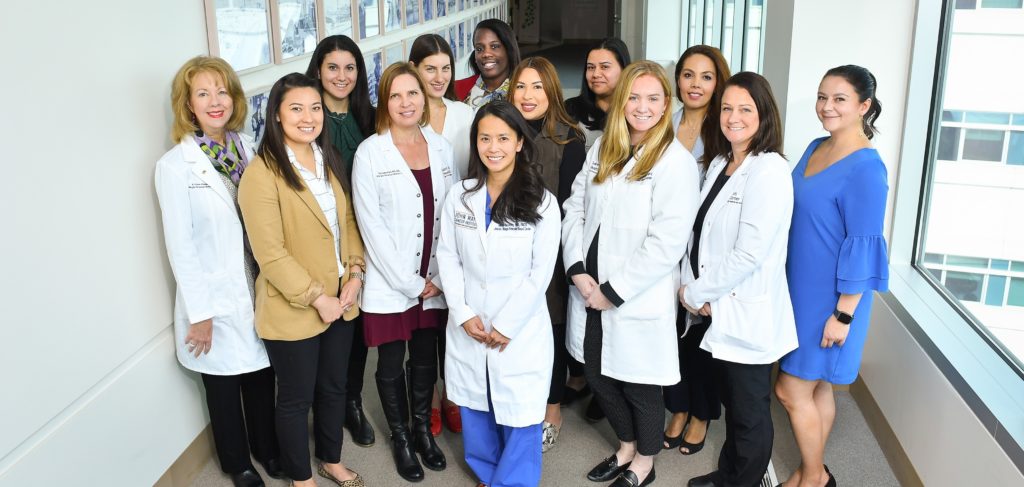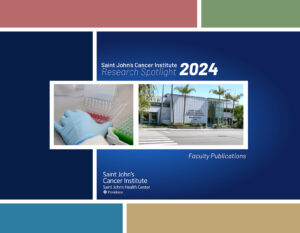Family History of Cancer and Genetic Testing
Although all cancers result from genetic errors (also called mutations), most cancers develop over time as multiple mutations accumulate in single cells. This can be due to things like aging or the environment. However, in some families, an inherited risk factor can be identified that causes increased cancer risk. This is true in at least 10% of breast cancers. Inherited risk can come from either side of the family, and the risk on each side is considered separately.
Every person treated for breast cancer at the Margie Petersen Breast Center has their personal and family health history considered. If needed, a referral for Hereditary Cancer Risk Consultation is made, and genetic testing may be done. Those with the highest likelihood of having a mutation identified are those with the personal or family history risk factors listed below. However, there is a growing recognition of the role of inherited risk for breast cancer, with some guidelines now recommending that ALL women with breast cancer be offered genetic testing. As we have Genetics expertise on site at the Breast Center, we will always be able to provide the most current information and recommendations to our patients.

Inherited Mutations
Inherited mutations in the BRCA1 and BRCA2 genes are the most common cause of inherited breast cancer risk. However, a number of other inherited gene errors can contribute to breast cancer risk. This includes over a dozen breast cancer genes like PALB2, CHEK2, and ATM. Therefore, every patient seen in our Genetics Program will be offered comprehensive panel testing to identify a wide range of possible inherited genetic mutations. Many of the genes included on panel testing have similar jobs in the body – to direct certain growth regulation and cell repair functions. Mutations may make the gene unable to work correctly. Inheriting a gene mutation does not always mean that cancer will develop, but makes the risk of developing a cancer higher.

If testing is done and a mutation is identified, it gives information about your subsequent cancer risk and can help direct risk control strategies. Even in families with strong indications of inherited risk, a specific known mutation may not always be found. Risk for future cancers can also be estimated using clinical factors and risk models. If you are found to be at higher risk for future cancers, management options such as risk reducing (“prophylactic”) surgery, specialized imaging studies like breast MRI, medication use, and lifestyle changes will be discussed. Test results also help us estimate breast and other cancer risks for your close relatives.

Meet Our Breast Health Care Team
The Margie Petersen Breast Center at Providence Saint John’s Health Center brings you some of the finest breast health and cancer care in Southern California.






